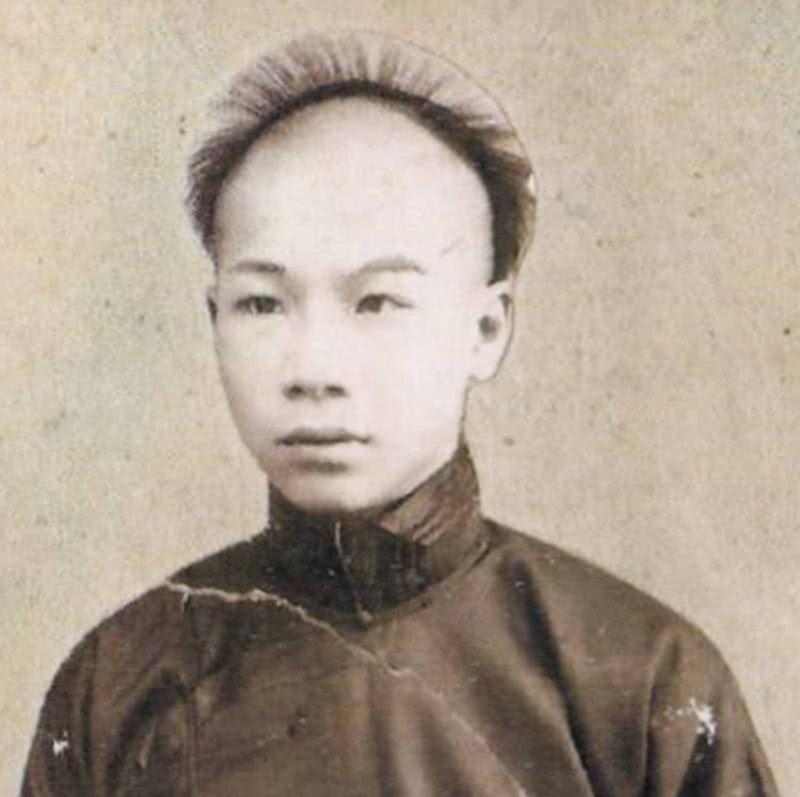In April 1927, when the Ninghan Split, Chiang Kai-shek established the Nanjing National Government, moved the capital of the Nationalist Government to Nanjing, and personally designated Liu Jiwen as the mayor of Nanjing. Liu Jiwen thus became the first mayor of Nanjing, and today we will talk about the outcome of Liu Jiwen, the first mayor of Nanjing in the Republic of China, after he fled to Taiwan.

Born in 1890, Liu Jiwen was a native of Dongguan, Guangdong Province, who joined the League at an early age and was deeply trusted by Sun Yat-sen, serving as the head of the Audit Bureau of Sun Yat-sen's Grand Marshal's Office. In the winter of 1923, Liu Jiwen went to the United Kingdom to study, and after graduation, he went to the United States to study and study municipal construction in the United States, which was his experience in the United States that laid a solid foundation for him to become the mayor of Nanjing in the future.
In 1927, after Chiang Kai-shek established the National Government in Nanjing, he appointed Liu Jiwen as the first mayor. As we said earlier, Liu Jiwen studied municipal construction, and Nanjing is the capital of the Republic of China, and Chiang Kai-shek's purpose in appointing Liu Jiwen as the mayor of Nanjing is also obvious, and he hopes that Liu Jiwen can build Nanjing into a beautiful and beautiful capital.
At that time, it was still the period of the Northern Expedition, the warlords of all walks of life were fighting, the people were not happy, even if Nanjing was the capital of the Republic of China, the traffic and health situation was still worrying. Immediately after Liu Jiwen became mayor, he began drastic reforms, demolishing many old houses in Nanjing and replanning Nanjing's municipal construction.
In the process of demolishing the old house, Liu Jiwen inevitably offended people, so he specially issued a special regulation: all officials of the Republic of China government were not allowed to buy houses in Nanjing, including Liu Jiwen, although he was the mayor of Nanjing, he did not have a house in Nanjing, and he had been living with his family in the dormitory arranged for him.
Liu Jiwen's greatest contribution during his tenure as mayor of Nanjing was the construction of Zhongshan Avenue. Zhongshan Avenue, also known as the "Meridian of the Republic of China", was one of the few new asphalt roads at that time, with a total length of 21 miles and a large number of French plane trees planted on both sides. There is also a legend about these French planes, saying that Song Meiling loved French planes, and Chiang Kai-shek deliberately planted French planes in Nanjing in order to express his love. In fact, this is a beautiful lie, the French plane tree next to Zhongshan Avenue was specially purchased by Liu Jiwen from Shanghai in order to build Zhongshan Avenue.
In order to build Zhongshan Avenue, Liu Jiwen demolished the official residences of many high-ranking officials and nobles, the most famous of which was the forced demolition of Chiang Kai-shek's official residence. At that time, Chiang Kai-shek's official residence was located on the west side of today's Zhongshan East Road, which is now the Naval Headquarters. According to the construction plan of Zhongshan Avenue, Chiang Kai-shek's official residence was to be demolished, and Liu Jiwen personally presided over the forced demolition of Chiang Kai-shek's official residence, thus smoothly building Zhongshan Avenue.
In the early days, Liu Jiwen was deeply trusted by Chiang Kai-shek, but since Chiang Kai-shek put Hu Hanmin under house arrest, the contradictions between the two have deepened. Later, Liu Jiwen joined the anti-Chiang camp, went south to Guangzhou, participated in the formation of the National Government of Guangzhou, and served as the mayor of Guangzhou. During his tenure as mayor of Guangzhou, Liu Jiwen also made great contributions to the planning and construction of Guangzhou.
In 1949, when the Kuomintang was defeated and retreated to Taiwan, Liu Jiwen followed Chiang Kai-shek and fled to Taiwan. After all, Liu Jiwen was a figure of the kuomintang's level, so after arriving in Taiwan, he also mixed with an official and a half-post, and he was appointed by Chiang Kai-shek as the "national policy adviser of the presidential office." This official position sounded very grand, but in fact it was an idle post, so Liu Jiwen had nothing to do all day and lived an almost reclusive life.
In 1955, Liu Jiwen fell ill, and the following year he went to the United States for medical treatment. He died of illness in Los Angeles in 1967 at the age of 67.
Resources:
《Dictionary of People of The People of Japan》 Xu Yushun